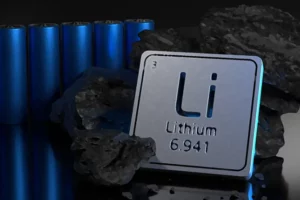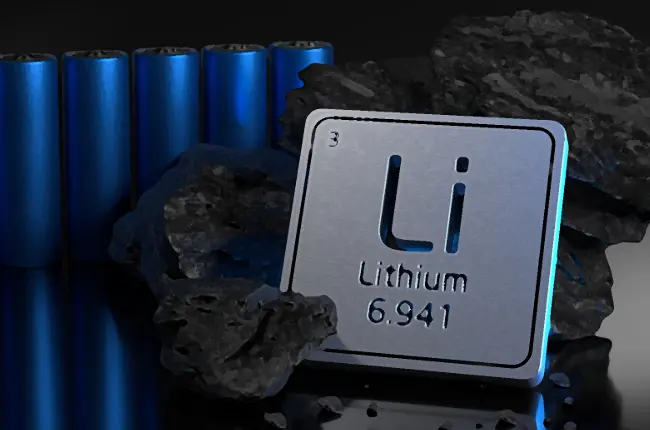Lithium, once a relatively obscure element, has experienced a remarkable rise in importance in recent years. Its exceptional properties and diverse applications have positioned it at the forefront of technological advancements, sustainability efforts, and economic growth. In this article, we will explore the increasing significance of lithium and its profound impact on various sectors.
- Clean Energy Storage:
Lithium-ion batteries have revolutionized the storage of clean energy. As the world shifts towards renewable energy sources like solar and wind, the need for efficient and reliable energy storage solutions becomes paramount. Lithium-ion batteries offer high energy density, long cycle life, and fast charging capabilities, making them ideal for storing and delivering renewable energy. This advancement has played a crucial role in scaling up renewable energy adoption and ensuring grid stability, furthering our transition to a low-carbon future. - Electric Mobility:
The electrification of transportation is a key component of sustainable mobility. Lithium-ion batteries have become the power source of choice for electric vehicles (EVs). The high energy density and rechargeability of lithium-ion batteries enable EVs to travel longer distances and charge more quickly. As governments and consumers increasingly prioritize decarbonization and air pollution reduction, the demand for lithium-ion batteries in the automotive industry continues to soar, driving the growth of the electric mobility sector. - Renewable Energy Integration:
The intermittent nature of renewable energy sources poses challenges for grid stability and energy management. Lithium-ion batteries facilitate the integration of renewable energy by storing excess energy during periods of high production and releasing it when demand is high or renewable sources are not actively generating electricity. This balancing act contributes to a more reliable and efficient energy system, enabling higher renewable energy penetration and reducing the reliance on fossil fuels. - Energy Efficiency and Demand Response:
Lithium-based energy storage systems play a crucial role in improving energy efficiency and enabling demand response. By storing energy during off-peak hours when demand is low and releasing it during peak hours, lithium-based systems help manage electricity consumption more effectively. This capability reduces strain on the grid during periods of high demand, enhances grid flexibility, and optimizes energy utilization, leading to cost savings and a more sustainable energy infrastructure. - Portable Electronics and Communication:
Lithium-ion batteries have transformed the landscape of portable electronics and communication devices. From smartphones and laptops to tablets and smartwatches, lithium-ion batteries power our everyday gadgets. The compact size, lightweight nature, and high energy density of lithium-ion batteries make them ideal for meeting the demands of a mobile and connected society. The proliferation of these devices and the continuous innovation in portable electronics drive the demand for lithium. - Job Creation and Economic Growth:
The expanding lithium industry has significant economic implications, including job creation and economic growth. Lithium mining, processing, and battery manufacturing operations generate employment opportunities and stimulate local and national economies. As the demand for lithium increases, investments in exploration, production, and related technologies spur innovation, research, and development. This growth translates into economic benefits, attracting investments and fostering a sustainable and thriving industry. - Environmental Sustainability:
Lithium’s impact extends beyond its role in advancing clean energy technologies. By enabling the transition to renewable energy and electric transportation, lithium contributes to environmental sustainability efforts. The use of lithium-ion batteries reduces reliance on fossil fuels, mitigates greenhouse gas emissions, and improves air quality. The increased adoption of lithium-ion batteries across sectors aligns with global sustainability goals and plays a vital role in combating climate change.
In conclusion, the rising importance of lithium is a testament to its remarkable properties and the transformative impact it has on various industries. From enabling clean energy storage and driving electric mobility to promoting renewable energy integration and supporting economic growth, lithium is a catalyst for progress and sustainability. As the world continues to prioritize clean energy and sustainable development, the demand for lithium will continue to grow, further solidifying its position as a key resource in shaping a greener and more prosperous future.

